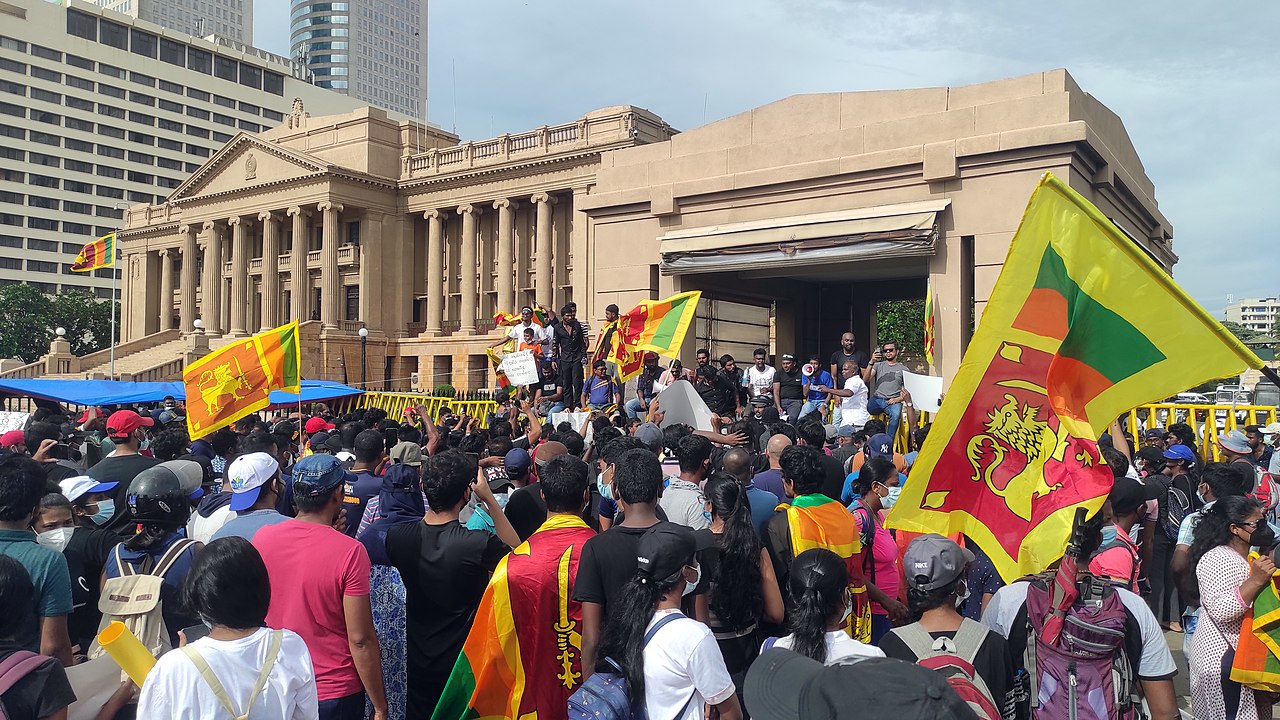
Writing in Foreign Policy, Neil Devotta, professor of international affairs at Wake Forest University, explains that “the roots of the current crisis lie with ethnocracy” which has led a country from meritocracy to kakistocracy – governance by a country’s worst citizens.
Quoting a Sri Lankan newspaper, Devotta writes, “drug dealers, fraudsters, murderers, rapists, bootleggers and cattle rustlers’ control politics, and they have bankrupted a country with so much potential”.
In explaining the rise of Sri Lanka as an ethnocratic state, he begins with the premiership of Prime Minister S.W.R.D. Bandaranaike which saw the implementation of the country’s most divisive and racist legislation – the 1956 Sinhala Only Act.
This ethnonationalism deepened in Sri Lanka and proved fertile ground for the Rajapaksa’s which oversaw the brutal ending of the armed conflict.
“Being anti-minority became patriotic, which is why the Rajapaksas could combine their Sinhalese Buddhist credentials with cavalier racism to keep winning elections for two decades. The role they played in defeating the separatist and terrorist Liberation Tigers of Tamil Eelam only bolstered these credentials” writes Devotta.
Despite this popularity, a series of poor decisions saw the traditional supporter base of the Rajapaksas turn against them. As Devotta notes:
“What is striking is that it took the worst economic crisis in the island’s history—not a popular commitment to ethnoreligious tolerance and pluralism or the need to account for alleged war crimes committed against Tamils or baseless attacks on Muslims—that made the island’s predominantly Sinhalese Buddhists sour on the Rajapaksa family”.
He further adds:
“In that sense, what the aragalaya proved is that nationalist sentiment cannot overcome hunger and scarcity. The Rajapaksas are among the most recent autocrats to discover this”.
Commenting on Rajapaksa’s refusal to relinquish power, Devotta writes:
“Kleptocrats seek to stay in power because they fear being held accountable. Gotabaya Rajapaksa refused to leave for so long because he gave up his American citizenship to run for the presidency and because once out of power he and his family could finally be charged for their predatory past”.
He further notes that currently, “there is such disgust with nearly everyone in Parliament that the legislature may be pressured to dissolve itself so new parliamentary elections, which need not be held until 2025, can be held early”.
He concludes by stating that:
“The ‘Go Home Gota’ campaign has generated discussions about building a future for all on the island. Perhaps the common suffering Sri Lankans are experiencing could be the antidote to the island’s ethnocracy. But given the island’s sorry past, only a fool would bank on that outcome”.
Read the full piece at Foreign Policy
We need your support
Sri Lanka is one of the most dangerous places in the world to be a journalist. Tamil journalists are particularly at threat, with at least 41 media workers known to have been killed by the Sri Lankan state or its paramilitaries during and after the armed conflict.
Despite the risks, our team on the ground remain committed to providing detailed and accurate reporting of developments in the Tamil homeland, across the island and around the world, as well as providing expert analysis and insight from the Tamil point of view
We need your support in keeping our journalism going. Support our work today.
For more ways to donate visit https://donate.tamilguardian.com.

